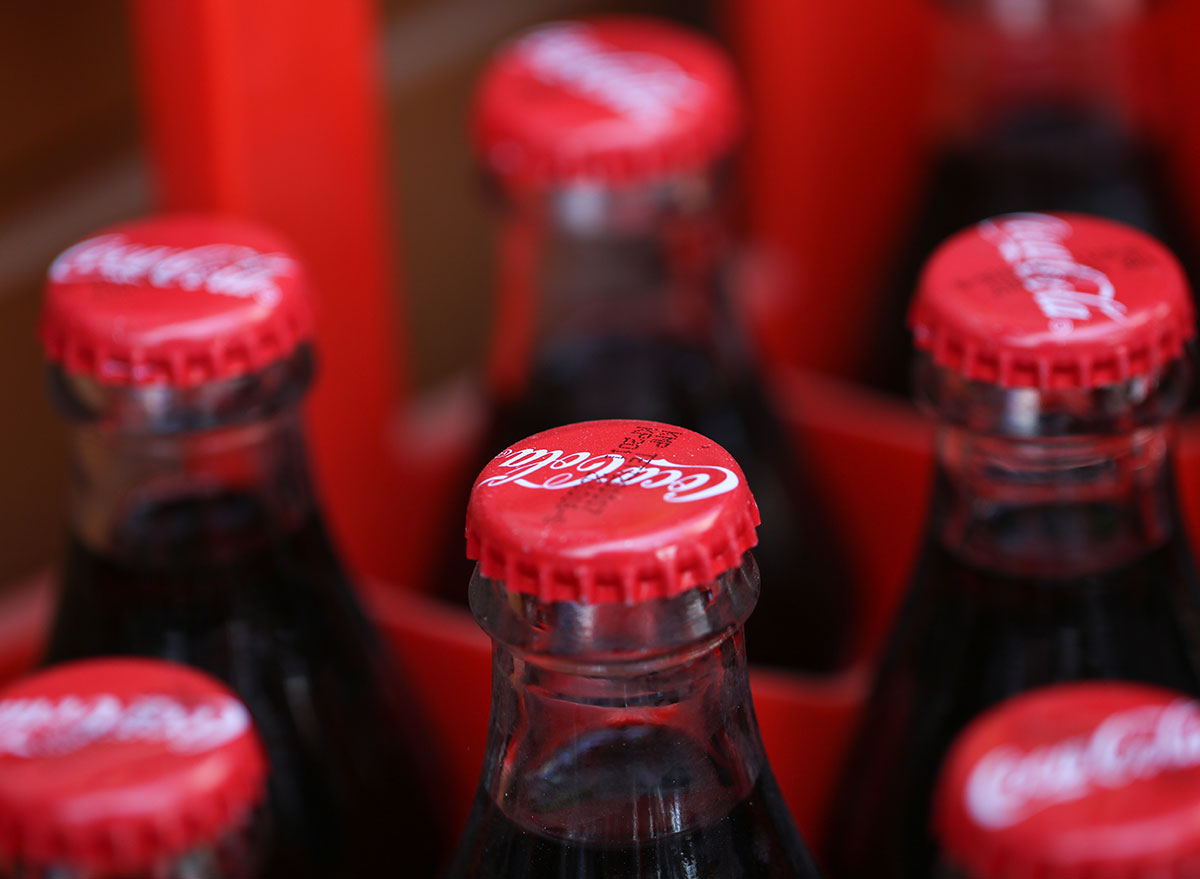Coca-Cola "Paid Scientists to Downplay" Harmful Effects of Sugar, New Study Finds

A new study published August 3 in the journal Public Health Nutrition reveals some surprising new details about the Coca-Cola Company and its influence on research regarding public health in the U.S. back in 2015 and 2016. According to the analysis, scientists at West Virginia University and University of Colorado, who were leading an allegedly independent research institution by the name of Global Energy Balance Network (GEBN), were actually funded by Coca-Cola. At the time, GEBN's research found that obesity in America was tied to a lack of exercise, effectively diminishing the role that sweetened beverages play in contributing to the country's obesity problem.
As the study explains, "In 2015, the New York Times revealed that Coca-Cola funded a global network of scientists, the Global Energy Balance Network (GEBN), ostensibly to divert attention from the contribution of sugar-sweetened beverages to [the] obesity epidemic, instead blaming inadequate exercise. A year later, a senior official at the Centers for Disease Control and Prevention was found to have communicated with a former Coca-Cola executive, strategizing how to convince the WHO to collaborate with the food industry to promote the same message."
Based on these allegations, a non-profit consumer and public health group called the U.S. Right to Know requested to obtain over 18,000 pages of emails between Coca-Cola and the GEBN sent between 2015-2016. This latest study analyzed these emails in order to come up with their most recent findings.
Here's what they concluded:
"Our analysis reveals a series of strategies, practices and mechanisms employed by Coca-Cola to influence the academic community and general public to promote its interests… These practices included an attempt to divert attention from The Coca-Cola Company's role as a funding source in research; diversifying funding partners; and, in some cases, downplaying the amount of funds it donated. Second, there was evidence of a 'coalition-building' strategy, through which Coca-Cola supported a network of academics that could promote messages associated with its public relations strategy and sought to support those academics in advancing their careers and building their affiliated public health and medical institutions."
In other words, this latest study indicates that Coca-Cola was funding research that would suggest sugar-sweetened beverages were not responsible for America's obesity problem. And, that the company was trying to influence public health professionals to say the same. (Related: Coca-Cola Will Stop Selling This Beloved Beverage for Good.)
However, as we all know, extensive evidence has shown that consuming sugar-sweetened beverages does contribute to weight gain, as well as a slew of other health complications, including diabetes, tooth decay, and potentially cancer.
"This is a story about how Coke used public health academics to carry out classic tobacco tactics to protect its profits," said Gary Ruskin, executive director of U.S. Right to Know, in a press release about the new study. "It's a low point in the history of public health, and a warning about the perils of accepting corporate funding for public health work."
For more nutrition and food news, sign up for our newsletter.








